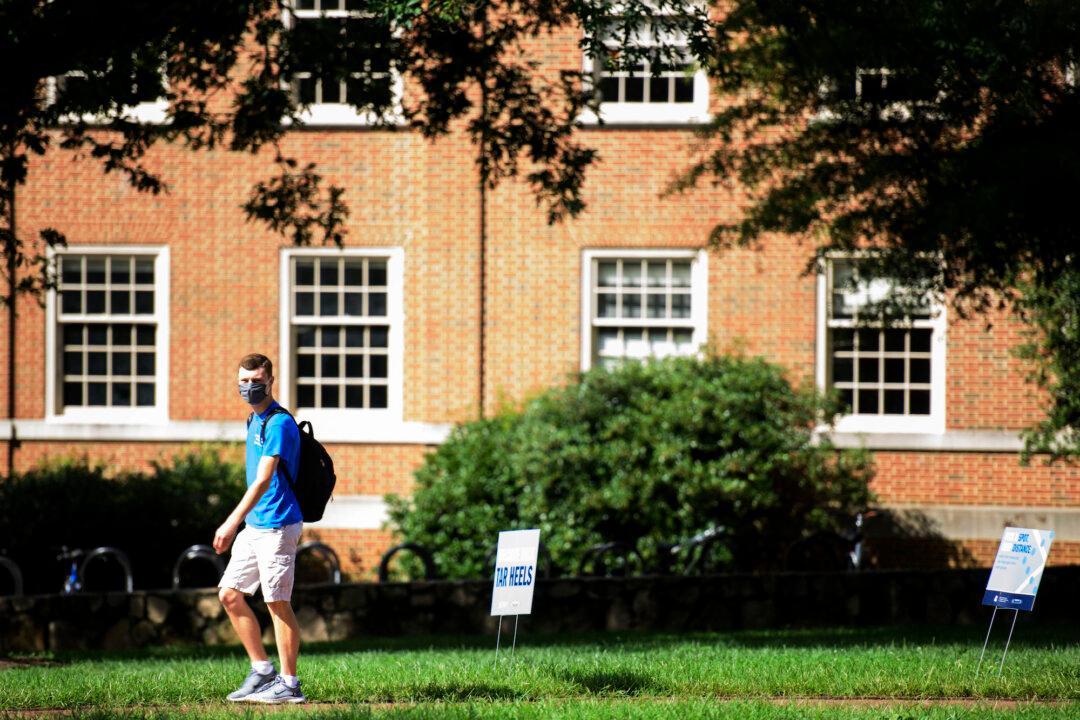The University of North Carolina at Chapel Hill said that Tuesday classes were canceled for its 30,000 students after police investigated a possible suicide and an attempted suicide over the past weekend.
In a statement, UNC Chancellor Kevin Guskiewicz, without elaborating, said the school is in a “mental health crisis” and that “we are aware that college-aged students carry an increased risk of suicide.”





